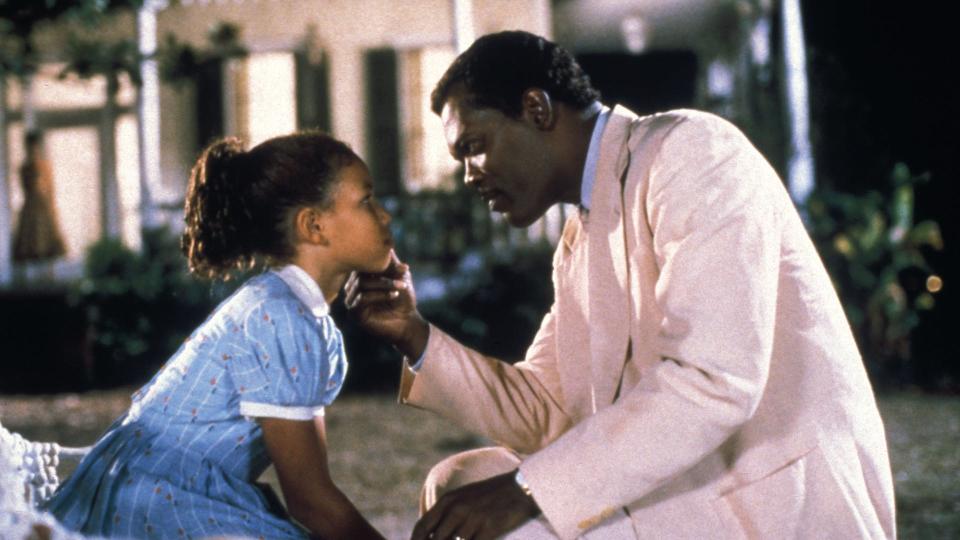Game Changers: Kasi Lemmons on uphill battle for female filmmakers of color: 'People think director, they think white man.'
Game Changers is a Yahoo Entertainment video interview series highlighting the diverse creators disrupting Hollywood — and the pioneers who paved the way.
Kasi Lemmons cites a startling statistic from USC Annenberg’s Inclusion Initiative when pointing out the vast underrepresentation of female filmmakers of color in Hollywood: Fewer than 1 percent of all directing jobs went to women non-white women in the 1,300 top movies released from 2007 to 2019, while white men accounted for 82.5 percent.
According to Lemmons, who helmed last year's Oscar-nominated Harriet Tubman biopic Harriet, that diminutive number stems from the power structure of the film industry.
"I think when people are looking for directors they often look for people that remind them of themselves," Lemmons told Yahoo Entertainment in our latest episode of Game Changers (watch above). "So many of the gatekeepers, they're not looking for us, as women. People think director, they think white man. And I think that takes a long time to change."
And while the number of working female directors of all ethnicities reached a high in 2019, accounting for 10.6 percent of the highest grossing films, Lemmons doesn't necessarily see that as cause for celebration: "With women, it's absolutely ridiculous. We're half of all people," she said. "There's no reason why we should be at [10.6] percent in a good year, and we're all supposed to be dancing and celebrating. [10.6] percent when we're 51 percent of the population. I think we should be deeply ashamed of that."

Lemmons, along with filmmakers like Julie Dash (Daughters of the Dust) and Gina Prince-Bythewood (Love and Basketball), is considered a pioneer in being one of the few black female directors to break through before the turn of the century, when those numbers were even more dismal.
Though Lemmons attended film school, her first big-screen successes came as an actor, with roles in films like The Silence of the Lambs (1991), Candyman (1992) and Fear of a Black Hat (1993). During her down time from working in front of the camera in the early 1990s, the St. Louis native wrote the screenplay for Eve's Bayou, a slow-burning drama about a Louisiana family with a philandering father.
When candidates repeatedly passed on directing it, though, Lemmons decided to take on the task herself.
"Just when I finally get somebody interested in financing Eve's Bayou, I'm pregnant," she recalled. "So when I went and took my green-light meeting, I was nine months’ pregnant. And I'm like, 'As if. I might as well be barefoot. I'm a pregnant black woman and I was sitting at this board[room] table full of men and one woman at the table."
Lemmons, who has since gone on to direct The Caveman's Valentine (2001), Talk to Me (2007) and Black Nativity (2013), caught her first taste of the double standards women face behind the camera on the set of her directorial debut.
"I remember when I did Eve's Bayou, the hairdresser saying, 'Never let 'em see you cry.' You know, giving me a lecture, mansplaining directing and being tough. And I'm nodding my head like, 'OK.'"

Eve's Bayou became a critical darling upon its release, with famed reviewer Roger Ebert calling it the best movie of 1997. In 2018, it was honored with a selection into the Library of Congress's National Film Registry.
Lemmons currently appears in the Netflix docu-series They've Gotta Have Us, which tracks African-American contributions throughout the history of the film industry and posits that Hollywood is undergoing a renaissance of black cinema with movies like Moonlight, Get Out, and Black Panther all triumphing in recent years.
"We've definitely gotten to the point where onscreen representation is a lot better," Lemmons said. "It's behind the camera that I think we need so much more work."
Watch Kasi Lemmons talk about the representation of African Americans in Hollywood:
Read more on Yahoo Entertainment:
Want daily pop culture news delivered to your inbox? Sign up here for Yahoo Entertainment & Lifestyle's newsletter.


